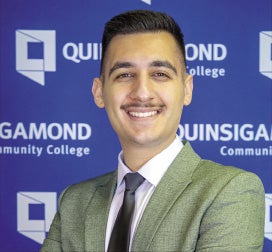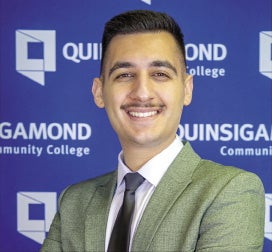When public support fades, philanthropy has to lead. Not just by writing checks. And not just in boardrooms. But out loud, in public, and with urgency.
Get Instant Access to This Article
Subscribe to Worcester Business Journal and get immediate access to all of our subscriber-only content and much more.
- Critical Central Massachusetts business news updated daily.
- Immediate access to all subscriber-only content on our website.
- Bi-weekly print or digital editions of our award-winning publication.
- Special bonus issues like the WBJ Book of Lists.
- Exclusive ticket prize draws for our in-person events.
Click here to purchase a paywall bypass link for this article.
Every fall and spring, I read through dozens of scholarship applications from students at Quinsigamond Community College. I’ve done it for years now, and it’s always humbling. The stories I read aren't just about GPA or course loads. They're about students working two jobs, caring for family members, or recovering from setbacks that would make most people quit.

One scholarship applicant was an immigrant living with and caring for his grandparents, both in their late 80s and early 90s, who speak no English. He was working two jobs just to keep the household going. These are not unusual cases; they’re the heartbeat of our campuses. That’s why this moment feels so heavy.
The Trump Administration’s push to dismantle the U.S. Department of Education and roll back federal student aid isn’t just policy business. It’s personal, especially for students at community colleges.
In May, the U.S. House advanced legislation to dramatically limit Pell Grant eligibility. Students taking fewer than 7.5 credits would lose access entirely, and students enrolled in 12 credits, which has long been considered full time, would only receive 80% of their Pell award. These changes hit hard. Community colleges serve more low-income, first-generation, and immigrant students than any other part of the system. For these students, losing aid isn’t a speed bump. It’s a wall.
When public support fades, philanthropy has to lead. Not just by writing checks. And not just in boardrooms. But out loud, in public, and with urgency. Foundations, donors, and institutions have a decision to make. Will we step in when others pull back? Will we advocate when access is being restricted? Will we defend the mission of public education, even when it's uncomfortable? This is not a drill. We are already seeing programs cut.
Philanthropy can’t afford to stay neutral. We need to keep funding scholarships. We need to support food pantries, academic coaches, and mental health services to help students stay enrolled.
We need to speak up. That means writing op-eds. Showing up to public hearings. Calling elected officials.
The future of public higher ed doesn’t just depend on what happens in the classroom. It depends on who gets to be in the classroom at all. If we let politics decide who gets help, we’ve already lost sight of what this work is for.
Community colleges are built for possibility. But possibility doesn’t pay the bills. It needs infrastructure. And it needs people willing to fight for it.
Jorgo Gushi is the president of the Quinsigamond Community College Foundation.

